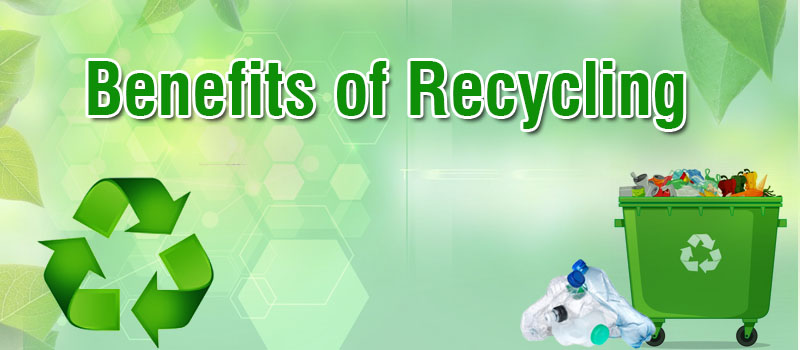The Benefits of Recycling
Recycling is a crucial practice that plays a significant role in preserving our environment and conserving resources. In this article, we will explore the numerous benefits of recycling and how it positively impacts our planet.
Reducing Waste and Landfill Space
One of the primary advantages of recycling is the reduction of waste sent to landfills. By recycling materials such as paper, plastic, glass, and metal, we can divert them from ending up in overflowing landfills. This not only helps to conserve valuable space but also prevents the release of harmful substances into the environment.
Conserving Natural Resources
Recycling helps to conserve natural resources by reducing the need for raw materials. When we recycle materials like paper and metal, we can reduce the demand for logging and mining activities. By doing so, we can protect natural habitats, preserve biodiversity, and maintain the delicate balance of ecosystems.
Energy Conservation
Another significant benefit of recycling is energy conservation. It requires less energy to produce products from recycled materials compared to using virgin resources. For example, manufacturing aluminum from recycled aluminum cans consumes significantly less energy than producing it from bauxite ore. By recycling, we can reduce energy consumption and decrease greenhouse gas emissions, contributing to the fight against climate change.
Preventing Pollution
Recycling plays a vital role in preventing pollution. When materials are recycled instead of being incinerated or left to decompose, harmful pollutants are not released into the air, water, or soil. For instance, recycling plastic helps mitigate the pollution caused by plastic waste, which can take hundreds of years to decompose naturally.
Creating Jobs and Boosting the Economy
Recycling not only benefits the environment but also has a positive impact on the economy. It creates jobs in various sectors, including collection, sorting, processing, and manufacturing. Additionally, recycling industries contribute to the economy by generating revenue through the sale of recycled materials.

In conclusion, recycling offers numerous benefits that are essential for the well-being of our planet. By reducing waste, conserving natural resources, saving energy, preventing pollution, and boosting the economy, recycling plays a vital role in creating a sustainable future. It is our collective responsibility to embrace recycling as a daily practice and actively contribute to the preservation of our environment.
Frequently Asked Questions
1. Why is recycling beneficial?
Recycling is beneficial because it helps reduce the amount of waste sent to landfills, conserves natural resources, saves energy, and reduces pollution.
2. What are the environmental benefits of recycling?
Recycling helps protect the environment by reducing the need for extracting, refining, and processing raw materials. It also helps conserve energy and reduces greenhouse gas emissions.
3. How does recycling conserve natural resources?
By recycling materials such as paper, plastic, glass, and metal, we can reduce the need for extracting and processing virgin materials, thus conserving natural resources like trees, oil, and minerals.
4. Does recycling save energy?
Yes, recycling saves energy because it requires less energy to process recycled materials compared to extracting and refining raw materials. For example, recycling aluminum cans saves up to 95% of the energy needed to produce new cans from bauxite ore.
5. Does recycling help reduce pollution?
Yes, recycling helps reduce pollution. When we recycle, we decrease the demand for new materials, which in turn reduces the pollution generated during the extraction, manufacturing, and transportation processes.
6. What impact does recycling have on landfill space?
Recycling helps reduce the amount of waste sent to landfills, thus extending their lifespan. By recycling, we can divert materials from landfills and promote a more sustainable waste management system.
7. Can recycling help combat climate change?
Yes, recycling plays a role in combating climate change. It helps reduce greenhouse gas emissions by reducing the energy required for manufacturing new products and by preventing the release of methane gas from decomposing waste in landfills.
8. How does recycling benefit the economy?
Recycling can benefit the economy by creating jobs in the recycling industry, reducing waste management costs for businesses and local governments, and generating revenue from the sale of recycled materials.
9. What are the social benefits of recycling?
Recycling promotes a sense of environmental responsibility and encourages sustainable behavior. It also helps create cleaner and healthier communities by reducing pollution and conserving natural resources.
10. How can individuals contribute to the benefits of recycling?
Individuals can contribute to the benefits of recycling by practicing proper recycling habits, such as separating recyclable materials from non-recyclables, using recycling bins, and supporting local recycling programs and initiatives.




